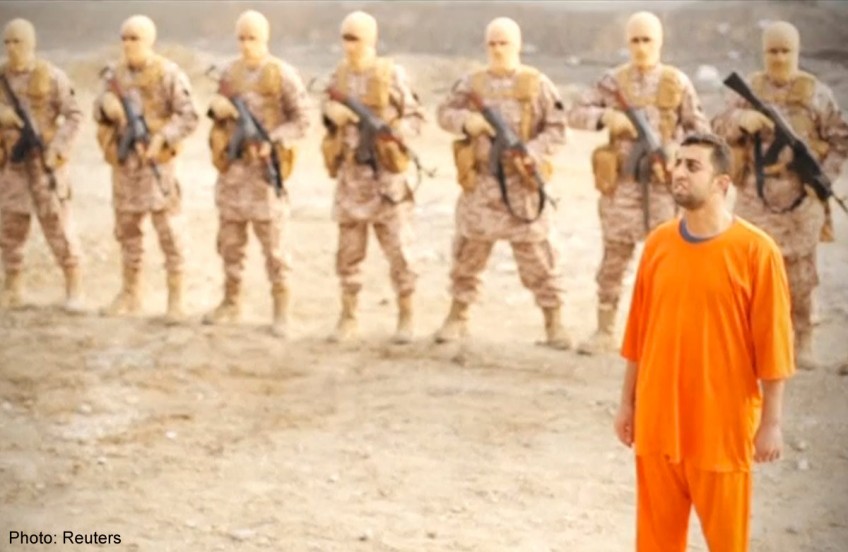US hopes pilot's murder will toughen Jordan's resolve

WASHINGTON - Islamic State's burning to death of a captured Jordanian air force pilot is likely to harden Jordan's position as a member of the US-led coalition striking the militant group in Syria, US officials said on Tuesday.
The officials, speaking on condition of anonymity, said Jordan has not retrenched from the air campaign against Islamic State since the group captured pilot Mouath al-Kasaesbeh after his jet crashed in northeastern Syria in December.
One official said he expected al-Kasaesbeh's killing "to have an electrifying effect" on Jordan.
But the campaign also poses risks for Jordan, where there are pockets of support for Islamic State and which has been keen not to trumpet its military role in a neighbouring Arab country.
Islamic State released a video on Tuesday that appeared to show al-Kasaesbeh being burned alive. The video surfaced on the same day Jordan's King Abdullah visited Washington, and the United States announced plans to boost annual aid to Jordan to $1 billion from $660 million.
"The Jordanians' response to the brutal murder of their pilot is going to be strong and forceful, and the Jordanian response will be to be more engaged, not less engaged," said Republican Sen. Lindsey Graham, among a group of lawmakers who met with the monarch.
"The King feels that the gloves are off," Graham told Reuters.
Jordanian officials have indicated recently they may expand their role in the anti-IS battle, US officials said, although what specific new help Amman might offer is unclear.
A fragile coalition of Arab states including Jordan has given US President Barack Obama symbolic and practical backing in the air campaign against Islamic State in Syria.
Some of Washington's European allies conduct airstrikes in Iraq, at Baghdad's request, but have declined to do so in Syria.
"I don't expect Jordan to pull out of the coalition at all. In fact, it will intensify the involvement," said Marwan Muasher, a former deputy prime minister of Jordan and ambassador to Washington.
Muasher, a vice president of the Carnegie Endowment for International Peace, said Jordan would not send troops into Syria, but steps like intensifying airstrikes and intelligence-sharing were possible.
Former State Department counter-terrorism chief Daniel Benjamin said Islamic State's use of extreme brutality is aimed more at attracting recruits - where it has seen some success -than splitting the coalition.
"Ultimately, though, the atrocities and the misgovernance of those under ISIS rule will turn the broader Muslim population more forcefully against it and strengthen the resolve of coalition members," said Benjamin, now at Dartmouth University.